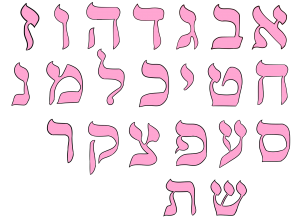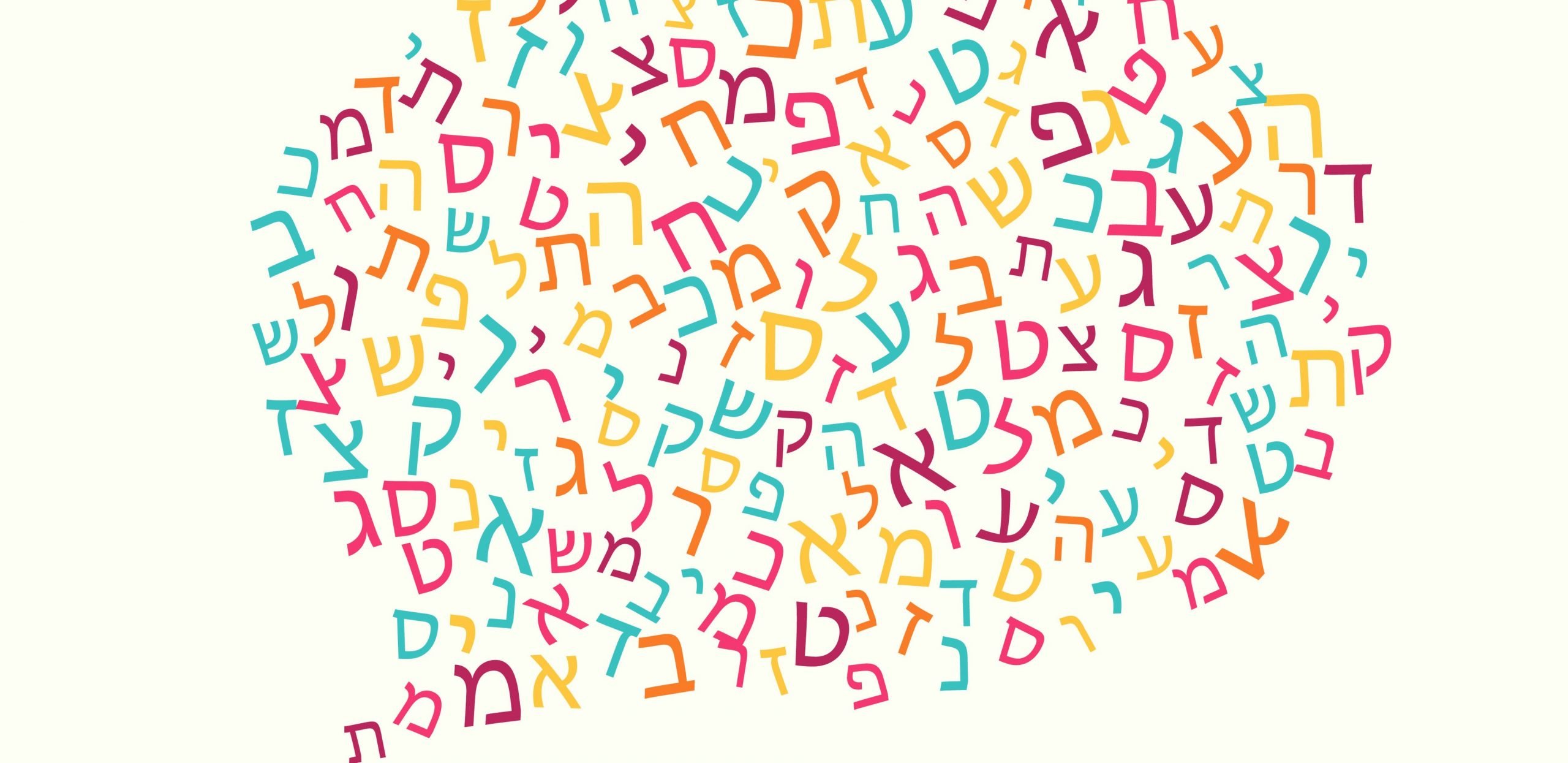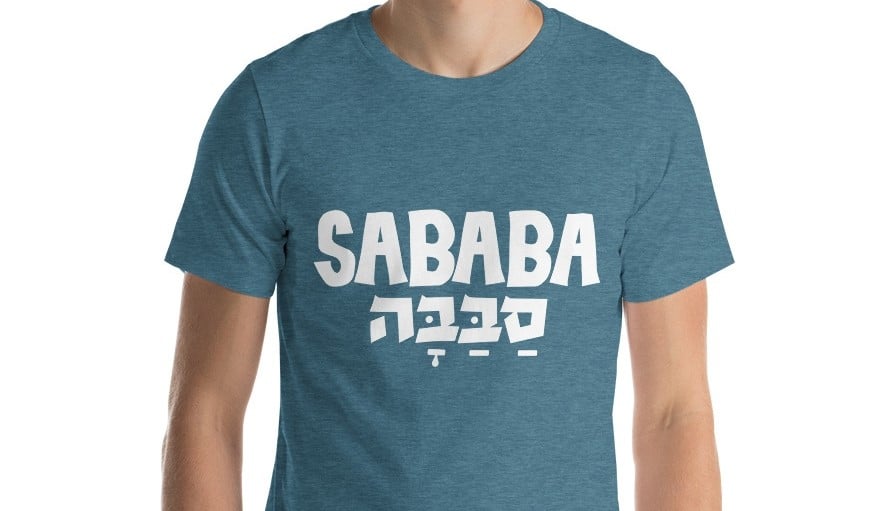
Let’s learn some Modern Hebrew slang!
While many Jews use Hebrew when they pray or study Jewish texts, the ancient Hebrew of the Torah is very different from the modern, spoken Hebrew you’ll hear on the streets of Tel Aviv and Jerusalem today. Hebrew was revived in the late 19th and early 20th centuries (which you can read more about here!), leading to the development of words for everyday objects and situations that couldn’t be found in the Bible. And naturally, the development of Modern Hebrew also led to a rise of Hebrew slang!
Whether you have a trip planned to the Holy Land or you just want to impress your Israeli friends and family, we have compiled a list of the top 10 colloquial Hebrew phrases that everyone should know.
You probably already know the famous Israeli term yalla – “come on” or “let’s go” – so here are our favorite 10 phrases you didn’t know but should!
Yalla let’s go!

1. סבבה – Sababa – Cool/Ok/Very good
Sababa comes from Arabic, but it has made its way into everyday Hebrew. It’s often translated to English as “cool,” but it can also be used similarly to “okay!” or “nice“ or even “yes” or “good.”
Want to meet at the movies at 8? Sababa. I bought this dress half-off! Sababa!
2. פעם שלישית, גלידה – Pa’am shlishit, glida – Third time, ice cream!
This is a phrase that doesn’t totally make sense when translated to English. Literally, it means “third time, ice cream!” You can say it the same way you’d say “third time’s a charm” in English, but it can also be used when you run into someone repeatedly throughout a day.
3. מת עליך – Met alaicha/alaich – I am dying for you
Literally, “I die for you,” this phrase isn’t nearly as grim as it sounds. It’s actually flattering and romantic!
If someone says met alaicha to you, it means they’re really into you, so much that they’re dying for you! Hebrew is a gendered language, so you change the pronunciation of the last letter based on who you are speaking to. Met alaicha is how you would say the phrase to a male, while you would say met alaich to a female.
4. נו – Nu? – Yeah? So?
Nu might sound familiar if you have Yiddish-speaking family, as the word became integrated into Hebrew thanks to Ashkenazi immigrants to Israel in the 20th century. Israelis say nu when in response to a cliffhanger — “Nu?! Get to the point!” — or to let you know they’re listening throughout a long story. Nu can also be used if someone is staring or laughing at you — “Nu? What are you looking at?”
5. ממש – Mamash – Really/A lot
Mamash is one of those words that is so catchy, you’ll start weaving it into English sentences. Mamash adds emphasis, like “really.” I love this cafe, mamash. She mamash needs a haircut. Are you hungry? Mamash!
A common phrase is “mamash toda” – like saying “thank you, really” or “many thanks.”

6. יש – Yesh – Yes!/Yay!

You might already know the word yesh. It means “there is” in the literal sense. However, the inflexion and tone of voice here matters! If someone says yeshhhhhh and really stretches out the sounds, it’s meant to convey excitement, like “yay!” It’s easier to understand while texting, as Israelis often write ישששששששש to emphasize.
You found tickets to the sold-out concert? Yeshhhh!
7. חי בסרט – Chai B’seret – Living in a Movie
Chai B’seret, literally “living in a movie,” is an expression used when someone is being unrealistic. It can also be used sarcastically, similarly to “Yeah, right…” in colloquial English. He quit his job because he thinks he will win the lottery? He’s really chai b’seret, huh?
8. סתם – Stam – Just Kidding/Nothing/Just because
This word is a little trickier to explain because it has a few different uses. You can say stam the same way you’d say, “Just kidding!” after poking fun or making a joke. It can also mean “nothing” or “nevermind” or “just because.” Why are you being so quiet today? Stam.
9. שטויות במיץ עגבניות – Shtuyot b’mitz agvaniot – Utter Nonsense

Like so much of Israeli slang, this phrase shouldn’t be taken literally. Meaning “nonsense in tomato juice,” this Hebrew phrase comes from a similar saying in Germany that translates to, “nonsense in sauce.”
Much like the phrase itself, shtuyot b’mitz agvaniot just means utter or complete nonsense. That t-shirt costs $200? Sheesh, shtuyot b’mitz agvaniot.
10. בלאגן – Balagan – Chaos
If you have ever traveled to Israel, you have definitely experienced a balagan, whether you went shopping at the shuk (outdoor market) just before Shabbat or you got stuck in traffic in Tel Aviv. Balagan means chaos, used as a noun. Trying to get a new ID at the DMV? What a balagan! Similarly, someone who is chaotic and always making messes can be called a balagani.
An additional and newer usage of the word balagan combines it with the iconic yalla and means chaos in a good way, like a party or exceptionally fun time. Israelis pump each other up by saying “yalla balagan!” before going out to a party, rock concert, or sporting event – like saying “let’s party!” or “let’s go rumble!”

Now that you’ve brushed up on some Hebrew slang, make the Hebrew language come alive in your own life with our Hebrew alphabet gifts or a piece of jewelry with your Hebrew name!
Yalla let’s go!
Show off your love of the Hebrew language with amazing Hebrew alphabet t-shirts, watches, home décor and more!












